Isabel Vaughan-Spruce has been praying outside abortion centres for the past 20 years. She explains why, despite being arrested twice in recent months, she won’t let changes to the law deter her
Even after she was exonerated, and received £13,000 in compensation from the police, Isabel Vaughan-Spruce feared her ordeal at the hands of the British justice system could deter fellow Christians from standing up for the rights of the unborn child. But she needn’t have worried.
“I’ve had people contacting me saying: ‘I need to get off the fence. This is a really key issue and I need to do something about it,’” she says of many Christians’ reactions to the introduction of new 150m ‘buffer zones’ around abortion centres in the UK. It isn’t just pro-life protests that are banned within these zones – offering support to vulnerable women and even silent prayer are also forbidden.
Many Christians are outraged there are now places in the UK where praying in public is illegal. They say the roll out of buffer zones is impinging basic human rights of freedom of expression and belief. But others – including some pro-life Christians – do not understand why Vaughan-Spruce, and others like her, feel the need to pray directly outside abortion centres. Why court controversy? Prayers are just as effective when spoken elsewhere, they say.
Vaughan-Spruce is eloquent, sensitive and intelligent in answering such objections. Her views are strong and certain, but she is no extremist. She grew up in a Christian home, sharing one bedroom with her five siblings so her parents could offer the remaining rooms in their large house to those who needed somewhere to go. Street homeless and those with mental health challenges were all welcomed in. Her family was, she says: “very pro-life in every sense of the word”.
Innocents are being put to death legally just as, 2,000 years ago, the most innocent person ever was put to death
Being taught to value people “for who they are, rather than what they can or can’t do” is central to Vaughan-Spruce’s approach to the pro-life cause. Today, she runs March for Life UK, which takes to the streets of London annually to campaign for an end to abortion, and 40 Days for Life, which organises prayer vigils and offers advice and support to those considering abortion.
Since abortion became legal in 1967, more than ten million have been carried out in the UK. Over a quarter of a million abortions took place in England and Wales in 2022 - the highest annual number since records began. Far from this being the hallmark of a progressive, compassionate society, Vaughan-Spruce believes that what is currently being permitted is damaging and narrow, causing harm not only to unborn children, but also to women and men in increasing numbers. And she’s determined to do something about it.
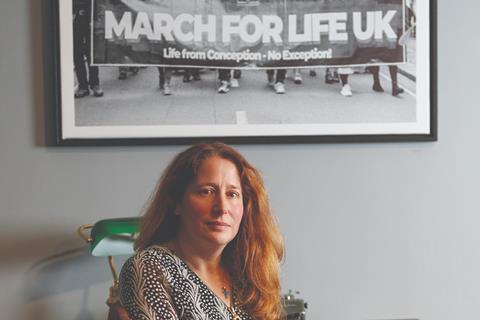
If God can hear our prayers wherever we are, why do you feel the need to pray directly outside abortion clinics? Why not pray at home and avoid the perception of intimidating or upsetting people?
When you look at how Mary behaved when her son was being crucified, she could have just stayed at home or gone to the temple and prayed. But she publicly stood at the foot of the cross and prayed there, with her son, united. She wasn’t remonstrating with soldiers or physically trying to stop what was happening; she was just present.
I see abortion centres as the modern-day Calvary. Innocents are being put to death legally just as, 2,000 years ago, the most innocent person ever was put to death. We might not be able to do anything to stop it, but just being there is spiritually significant. Yes, we can pray anywhere. But place is important.
For you, that has been very costly in recent months since the introduction of buffer zones around abortion centres. What happened?
The Public Space Protection Orders (PSPOs) in Birmingham banned protest. I don’t go to abortion centres to protest – in fact, I don’t know anyone in this country who does – so, my reasoning was that I’m going there to pray, so I’m able to do that.
When I first started going in 2020, there were just two people standing there quietly, saying prayers or with leaflets that offered help.
The more I went, the more I recognised how damaging abortion was to women. I’d see them coming out and being sick in the gutter, sobbing into their phones; sometimes the same man came back week after week with different women who clearly didn’t have much choice in what they were doing. You’d see 14-year-olds being frogmarched in there. I thought: This isn’t pro woman.
I know many women who accepted help and were very grateful for being able to continue a much-wanted pregnancy, but we received a lot of abuse, not from people using the abortion centre or staff, but from locals. We’ve been spat at, sworn at, had our property stolen, been physically assaulted. When we spoke to the police – and even showed them video footage – they said: “Well, if you don’t want to be assaulted, you don’t have to come, do you?” The council would say crime had increased in the area since we’d been there – it had, but we were the victims! But it was easier to move us than deal with the real problem, which was some very intolerant locals.
Even when we moved outside the buffer zone, standing outside a local church more than 150m away, we were still sworn at, spat at, physically assaulted and threatened – so it isn’t really a case that people are worried about women being intimidated or harassed. That was never happening.
Why were you arrested?
I actually went inside the buffer zone when the abortion centre was closed, and just stood a short distance away, silently praying in my head. I wasn’t carrying a poster, leaflets, a Bible, a rosary…no one was coming in or out. There was no one there at all. If anyone looked at me, I could have been waiting for a taxi or just standing on the street corner.
I presume the locals recognised me and phoned the police. They came and asked if I was protesting. I said I wasn’t. They asked what I was doing, and I said: “Well, I’m just standing here. I might be praying in my head, but if I was, it would just be silent prayers.” They searched me, took me to the police station and locked me in a cell. Eventually I was released on bail and went to court a few months later.
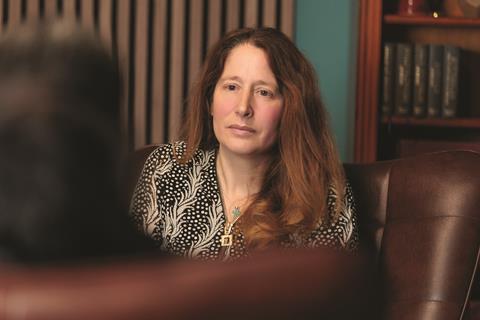
What happened at that court hearing?
I was completely acquitted within minutes. The charge, by the way, was that I was “engaging in an act which was intimidating to service users”, which highlights how ridiculous it was. There were no service users. The abortion centre was closed, so clearly there was an agenda. They were trying to intimidate me, rather than me intimidating anyone else!
I reasoned: OK, now everyone understands that I am allowed to be there. So, a couple of weeks later, I stood in exactly the same spot, again just silently praying. This time, six police officers came with a van. They told me that my prayers were an offence. I was taken away, put in a cell and released on bail. They didn’t actually charge me that time; I was kept waiting for six months before they told me nothing was happening.
After that, they would come and give me tickets, tell me that I was going to be fined. It was a process of intimidation. So, I made a claim against them for wrongful arrest, false imprisonment and assault. I was awarded an out-of-court settlement of £13,000.
Since then, have you been back?
I have – and I haven’t had any response since then. But that hasn’t been the case for everybody. Adam Smith-Connor, in Bournemouth, was fined for silently praying inside a buffer zone. He’s appealing but again, he was just silently saying prayers in his head, a distance away from the abortion centre – he even had his back to it, behind a tree, and yet somehow it was deemed to be breaking the PSPO.
The fact that there are now parts of the UK where you’re not able to pray in public is deeply troubling for many. What should the Church be doing about it?
It’s incredibly discriminatory. Even for those who don’t understand why it’s important for Christians to pray in a particular location, [the law is] trying to stop somebody offering help – and that’s actually very patronising to women.
It’s an incredibly unjust situation where women who are in very difficult situations can’t be offered an alternative. For more than 20 years, I’ve been going to abortion centres. I’ve spoken to hundreds of women and couples, both before and after abortions. When it gets to the question of: “What is actually said in the abortion centre? What help are you offered?” There isn’t any. No alternatives are offered.
Abortion centres don’t make money from women who choose life
One woman, Amrita, told me she was considering an abortion, but wasn’t sure. She went with a list of questions to help her decide, and when she asked the first one: “Does the baby have a heartbeat?”, they just said to her: “It’s as simple as this: Do you want an abortion or not?”
So many women say similar things. Even if they ask questions or to see a scan – abortion centres know it could encourage women to continue with the pregnancy. Their business is making money from abortions. They don’t make money from women who choose life.
Do you feel societal attitudes have changed over the last few decades?
I still think that, as young children, our natural instinct is to care for life. The ways our society teaches us otherwise are very subtle. If parents don’t help their children to understand this issue, by the time they get to be teenagers, it’s likely they might have different opinions – because of the media, education and the language used when talking about this subject.
People talk about ‘protecting’ themselves against pregnancy, like it’s a disease. We’re encouraging people to look at pregnancy, at children, in a negative light, and that can affect the decisions people make. The natural consequence of a physical relationship can be to have a child – it’s not some sort of unintended, unexpected result. The amount of peopjusticle I’ve spoken to outside abortion centres who say: “I’ve got no idea how this happened!” What they mean is, they were using contraception, and they had no idea it could fail. It’s considered a failure that they’re now pregnant, rather than something beautiful.
Of course, it can be a shock if you’re not expecting to be pregnant, but recognising the beauty of individual life is something we’ve really failed to see in modern life. Nowadays, children are looked at purely in terms of cost and burden – how my life will change – but I’d hate somebody to look at me and say: “What does Isabel cost society, what sort of a burden is she on those around her?”
A common objection to your position is “what about women who have been raped? Shouldn’t they have a right to an abortion?”
Sometimes people will become defensive when they get asked a question like that. I’ve heard people shoot back: “Oh, well, that’s less than one per cent of all abortions.” But the person you’re talking to might have been raped, or maybe somebody close to them has.
My starting point would be to go back and ask: “What is pregnancy? And what does abortion do to that child?” Because ultimately, if you have different ideas on what pregnancy is – a person or a blob of tissue – you’re never going to come to the same conclusion.
Once we’ve understood it’s a human child, we can look at pregnancy through rape. We can’t apportion the blame of the rapist onto the child. That’s not to say it is easy for that woman, but taking the life of her child isn’t the answer.
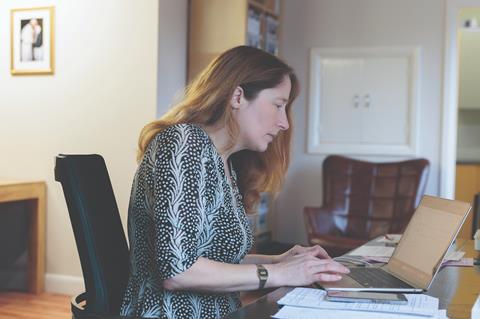
How did you become involved in leading March for Life?
When I first went to an abortion centre, it was the first to be opened in the country. It was a beautiful building in an expensive residential street, but behind those doors, around 10,000 human beings are intentionally killed at their most vulnerable stage every year. It really affected me. On that very first day, I felt a great sense of peace. I felt I was where God wanted me to be.
Once, a teenager asked what we were doing. I explained we were there to offer help and an alternative to anyone who was considering abortion but wasn’t sure, and she said: “If you’d been here last week, I wouldn’t have had my abortion.” I thought: Nobody else is going to be able to say that. Everybody is at least going to be offered an opportunity to continue their pregnancy.
During 40 Days for Life, we decided to have a procession in Birmingham. It was a very small event, a public witness to life. After that, we really felt we needed a national March for Life. Every year, numbers increase, with more and more Christian denominations coming together, different faiths, even people who don’t share our belief in God. This year, around 10,000 people came along to the event in London.
With Roe vs Wade in the US, and buffer zones here, are Christians waking up to the fact that they need to engage with the issue of abortion again?
Not enough, but some are.
One woman told us how she’d gone into the city centre to do some shopping. She was pregnant and had an abortion booked for two days’ time. She saw the March for Life, and also a smaller group protesting against it. She said the protesters seemed full of hate, and the pro-life crowd full of joy. She thought: What side do I want to be on? She spoke to some pro-lifers, listened to the speeches, went home and cancelled her abortion. The next year, she came back with her little boy. She got up on stage and said: “Because of you, I’ve got my baby now. So, you being here really is literally a matter of life and death.”
If people feel equipped to be open about their pro-life beliefs, that can make a difference and change the Church – and society.
You get invited to speak on this issue often – how are you treated by the media?
I think it’s apparent to anybody who’s engaged with these issues that when you read newspapers, online articles or watch the BBC, they don’t always speak the truth. I’ve seen crazy lies shared about myself and my team. One newspaper said we would lie on the road to stop cars driving near the abortion centre…it’s like: Do people really think we’ve got a death wish?
But talking to the media is important. There are times for being silent, even in the face of lies – Jesus is a perfect example of that. We don’t have to respond to every accusation thrown at us, but there are times when we do have to give a good answer.
Since I was arrested, I’ve had a lot more opportunities to speak to people. I was speaking somewhere recently, and a woman came up to me afterwards and said: “I hate the idea of women going into abortion centres being intimidated or harassed…” I was thinking: Gosh, here’s another person who’s believed all the lies. Then she paused and said: “I’ve realised this doesn’t happen. I’ve been lied to, haven’t I?”
She realised if the only people they can find to arrest or fine are people who are silently saying prayers, maybe this is what has actually been going on outside abortion centres all along. There weren’t people screaming and being abusive towards women. They’re actually there to help.
It can be frustrating for people to believe things about you that aren’t true, but whose footsteps are we following? Do we really think we’re going to be greater than the master? What the devil meant for evil, God has used for good (Genesis 50:20).
To hear the full interview listen to Premier Christian Radio at 8pm on Saturday 11 January or download ‘The Profile’ podcast premier.plus/theprofile













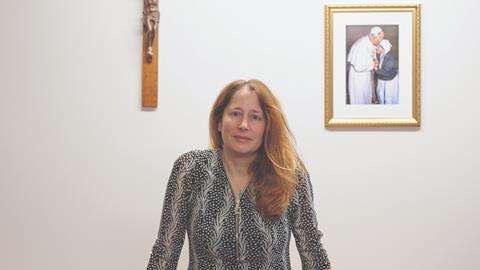

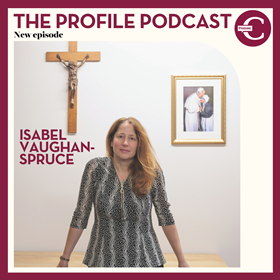
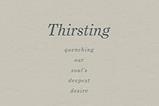

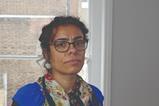




















No comments yet